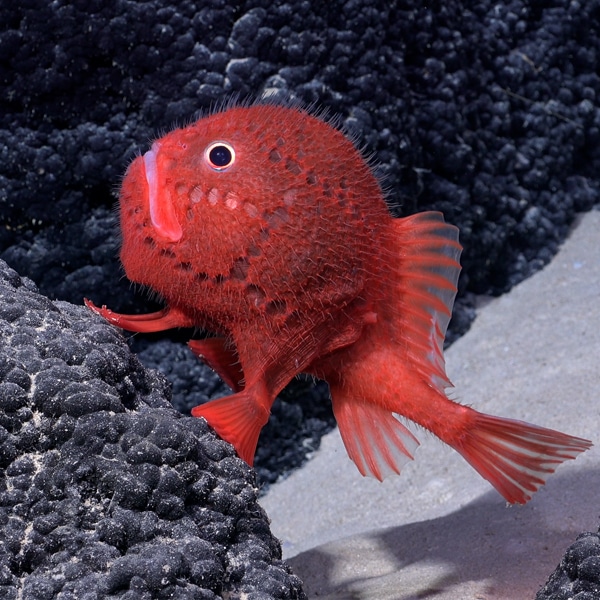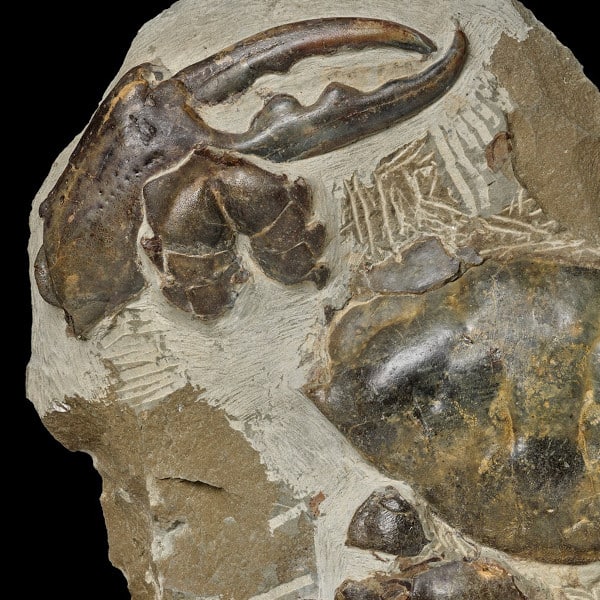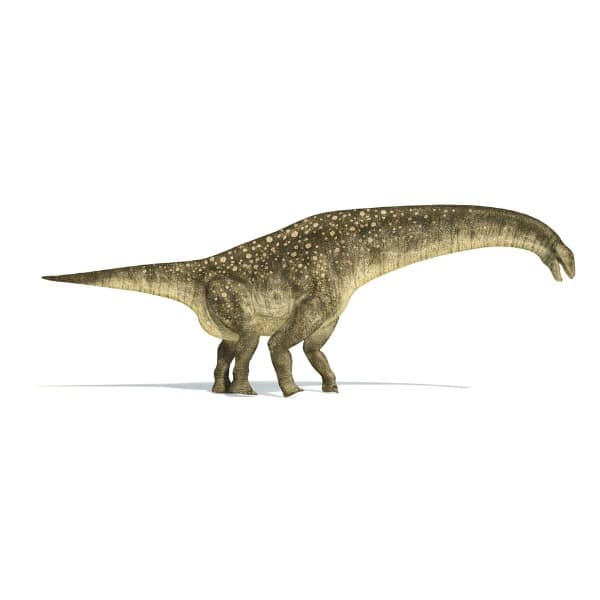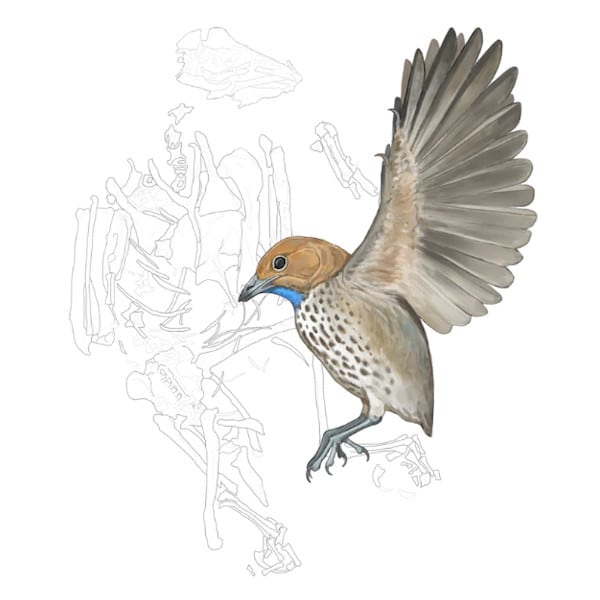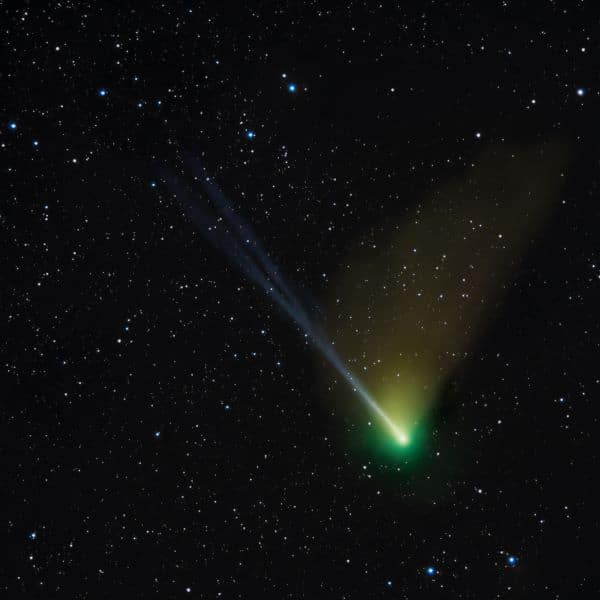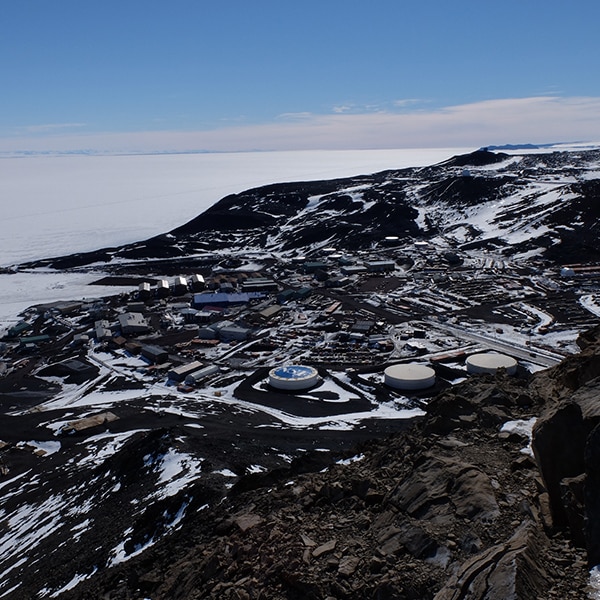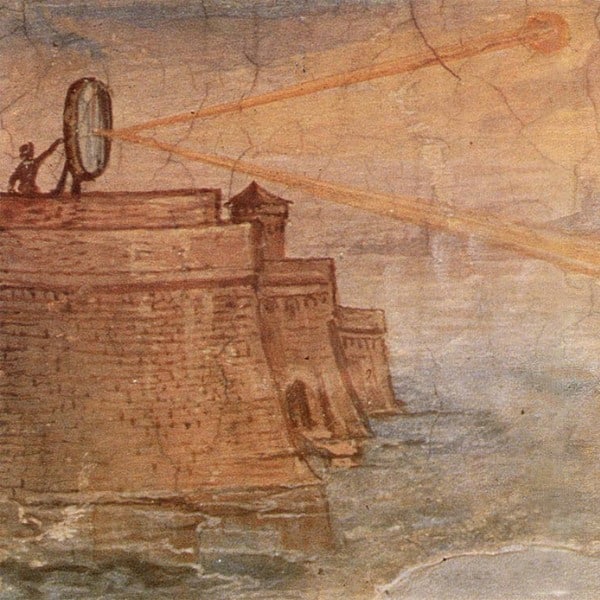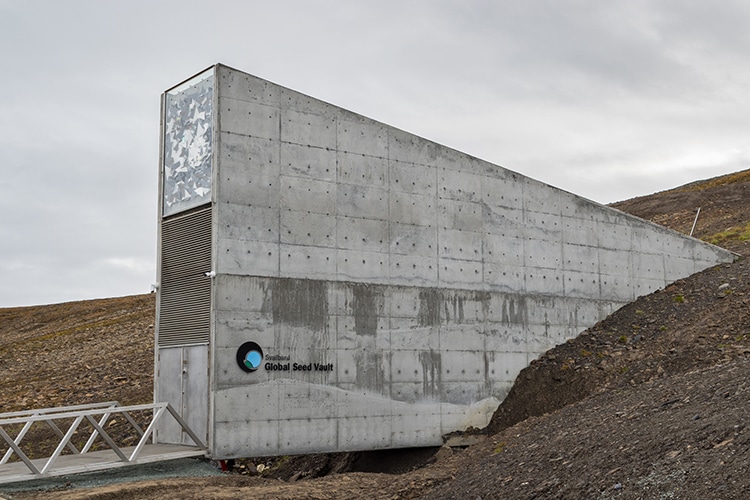
The Svalbard Global Seed Vault. (Photo: HOPSALKA/Depositphotos)
Lots of people have thought about the apocalypse, including what they might eat when society or the environment collapses. While preppers stock up on canned goods, scientists have a different idea—they're storing seeds. Banking seeds is both a present safeguard of biodiversity and a last-ditch hope for humanity's food sources should the worst come to pass. Known colloquially as the Doomsday Vault, the Svalbard Global Seed Vault in an arctic region of Norway holds the genetic keys to several millennia of domesticated agriculture. The week of February 14, the bank is opening its doors (a rare occurence) to admit several new types of seeds.
The vault's origins trace back to the 2001 International Treaty on Plant Genetic Resources for Food and Agriculture (ITPGRFA). The international agreement seeks to preserve food from natural and human disasters. In 2004, Norway agreed to fund and construct a seed vault in the arctic permafrost. Buried deep into the frozen Earth, the vault is naturally cold. However, it is also cooled by state-of-the-art systems which maintain -18°C (-0.4°F). The Norwegian government has updated their facility in recent years and is watching climate change predictions closely.
While still vulnerable to climate change, the vault's arctic environment will remain cooler than other seed banks around the world. Many seed banks exist in Southern regions where many of the plants humans depend on flourish. However, these climates may be more susceptible to climate crises. For this reason, the Svalbard Global Seed Vault describes its mission as “safe, free, and long-term storage of seed duplicates from all genebanks and nations participating in the global community’s joint effort to ensure the world’s future food supply.” Plant seeds interned around the world are backed up in Norway—like an external hard drive for agriculture.
This month, the doors open to admit samples of millet, sorghum, and wheat. Wheat is very important to the human diet. Along with maize and rice, it composes 40% of our global diet. According to their website, the vault serves as a safeguard: “While there may be a role for the Seed Vault in the event of a global catastrophe, its value is considered to lie much more in providing back-up to individual collections in the event that the original samples, and their duplicates in conventional genebanks, are lost due to natural disasters, human conflict, changing policies, mismanagement, or any other circumstances.” Let's hope we never have to use the seeds interned in a frozen mountainside of Norway; but for now, there's some solace in knowing that they are preserved to the best of human ability in case we need a backup.
The Svalbard Global Seed Vault—which opens only several times a year—will receive new seed samples. The bank serves as a safeguard for catastrophe.
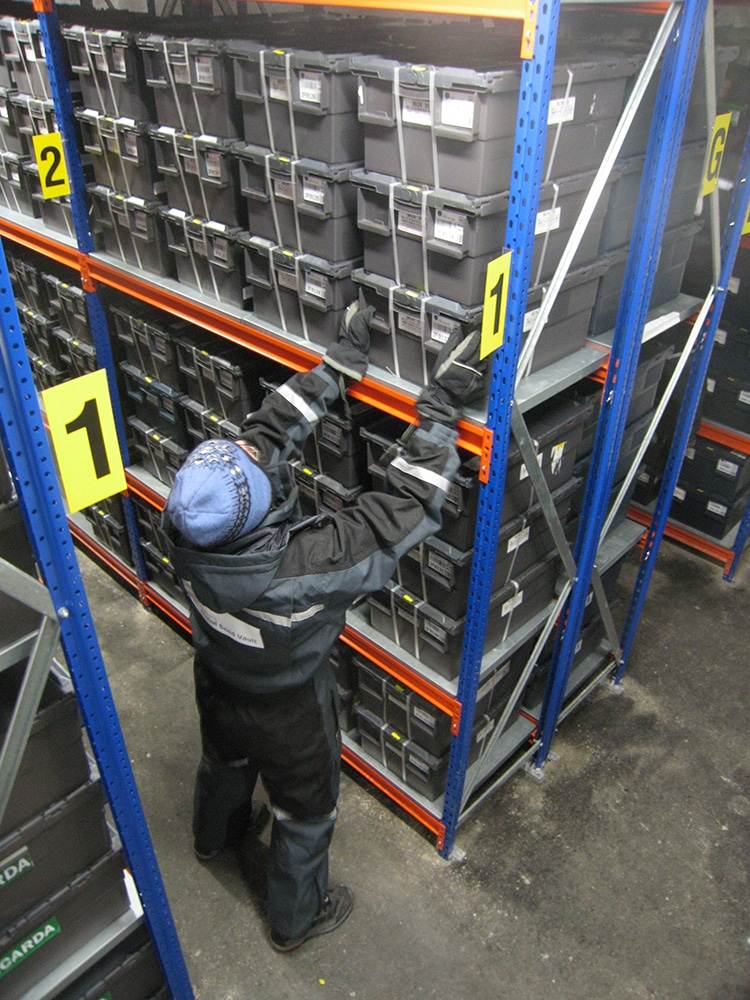
Seed storage inside the vault. (Photo: Dag Endresen via Wikimedia Commons, Public domain)
h/t: [IFL Science, Gizmodo]
Related Articles:
Scientists Made an “Everlasting Bubble” That Lasted 465 Days Without Popping
Canadian Doctors Can Now Prescribe Free National Park Passes for Your Health
Out-of-This-World Winners of the ASTRO2021 Photo Contest
Photojournalist Turned Nurse Pulls Back the Curtain on Hospital Life During COVID-19 [Interview]













































































